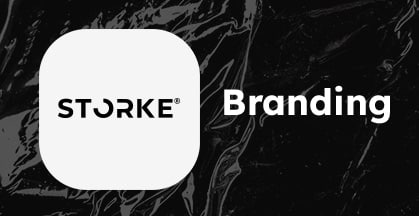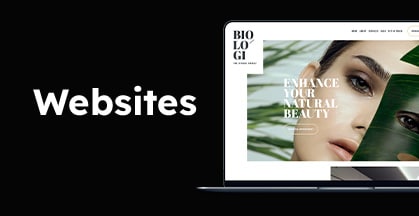Why Is PPC Marketing Important
PPC, or pay-per-click, marketing is a crucial component of any comprehensive digital marketing strategy. By providing instant visibility and measurable results, PPC advertising has become one of the most effective ways of driving targeted traffic to a website, generating leads, and increasing sales revenue. In this article, we’ll explore why PPC marketing is so important and how it can transform your online advertising efforts.
1. Reach Your Target Audience
PPC advertising enables businesses to target their ideal audience based on demographics, location, interests, and other criteria. This targeted approach ensures that your ads are seen by those who are most likely to convert, resulting in higher click-through rates and increased conversion rates.
2. Instant Visibility
One of the biggest advantages of PPC advertising is that it provides instant visibility to your products or services. Unlike traditional marketing methods, such as print ads or billboards, which can take days or even weeks to produce results, PPC ads are displayed immediately after they’re set up. As soon as your ad is approved, potential customers will see it at the top of search engine results pages (SERPs).
3. Measurable Results
Another major benefit of PPC marketing is its measurability. Unlike traditional advertising channels, such as TV or radio, which can be difficult to track, PPC campaigns provide detailed insights into your ad performance. You can track impressions, clicks, and conversions in real time and adjust your strategy accordingly. This granular level of data allows businesses to make informed decisions about where to allocate their advertising budget and optimize their campaigns for maximum ROI.
4. Cost-Effective
PPC advertising is incredibly cost-effective because you only pay when someone clicks on your ad. This means that you’re not wasting money on impressions that don’t convert into clicks, leads, or sales. Additionally, with tools like Google Ads, you can set daily budgets and bid amounts, so you’re always in control of your ad spend. This cost-effectiveness makes PPC marketing accessible to businesses of all sizes, from small startups to large enterprises.
5. Drive Traffic to Your Website
PPC advertising is a powerful way to drive targeted traffic to your website. By bidding on keywords that are relevant to your business, you can ensure that your ads are displayed to people who are actively searching for your products or services. This targeted approach results in higher-quality leads and increased website traffic.
6. Improve Brand Awareness
PPC advertising is a great way to improve brand awareness, even if your ads don’t result in immediate conversions. By appearing at the top of search results pages and on relevant websites, your brand can gain exposure to a wider audience. In fact, studies have shown that most people who click on PPC ads don’t convert on their first visit but are more likely to remember the brand and return at a later date.
7. Stay Ahead of the Competition
PPC advertising is a highly competitive arena, but by investing in this channel, you can stay ahead of your competitors. If your business is not appearing on the first page of search results, you’re missing out on potential leads and sales. By bidding on the right keywords and optimizing your campaigns, you can outperform your competitors and capture a larger market share.
Here are some ways to stay ahead of the competition:
- Conduct market research: Know your competitors, understand their strengths and weaknesses, and identify areas where you can differentiate yourself.
- Analyze customer needs: Understand what your customers want, and tailor your product or service accordingly.
- Innovate: Constantly innovate and come up with new and unique ideas to offer your customers.
- Build strong relationships: Build strong relationships with your customers through excellent customer service, engaging content, and social media.
- Utilize technology: Use technology to your advantage by optimizing your website, using digital marketing, and leveraging data analytics to make informed decisions.
- Invest in your employees: Invest in the training and development of your employees to improve productivity, and develop new skills.
- Monitor trends: Monitor industry and consumer trends, and adapt your business to meet evolving preferences.
- Keep track of your finances: Keeping your finances in order can help you stay ahead of your competitors, by making smart financial investments and identifying new opportunities.
8. Flexibility
Lastly, PPC advertising offers unparalleled flexibility regarding ad targeting, creativity, and messaging. You can create different ads for different target audiences, test different headlines and images, and adjust your bids and budgets. This flexibility allows businesses to pivot their marketing strategies quickly and respond to changes in the market.
Cons of PPC Marketing
PPC (Pay-Per-Click) marketing has been the go-to advertising method for businesses in recent years. However, it is not without its cons. Here are some of the main drawbacks of PPC marketing:
1. Cost: PPC campaigns can be very expensive, especially if you’re targeting popular keywords in highly competitive industries. You’re charged every time a user clicks on your ad, so it’s important to have a solid budget in place to avoid overspending.
2. Temporary results: PPC campaigns are temporary since they rely on advertising spending. Once your budget runs out, your campaigns will stop running, and you won’t receive any further traffic.
3. Low conversion rates: PPC ads tend to have lower conversion rates compared to other marketing methods. This is because many users click on ads simply out of curiosity or to do research without having any intention of making a purchase.
4. Competition: Since PPC is a popular advertising method, you’ll be competing against other businesses for ad space and keywords. This can make it difficult to get your ads seen by your target audience.
5. Inability to control user experiences: With PPC, you can’t control the user experience after they click on your ad. If your website or landing page isn’t optimized, you may lose potential customers.
Overall, while PPC marketing can be effective, it’s vital to consider both the pros and cons before investing your advertising budget.
In conclusion, PPC marketing is a critical component of any digital marketing strategy. By providing instant visibility, measurable results, and targeted traffic, PPC advertising can transform your online advertising efforts. Whether you’re a small local business or a multinational corporation, PPC advertising can help you reach your ideal audience, drive traffic to your website, and increase sales revenue.
What does your business need?
Schedule a Strategy SessionYou may also like

Building A Thriving Social Media Audience: Unlocking The Secrets To Success
June 1, 2023 By Webloo









